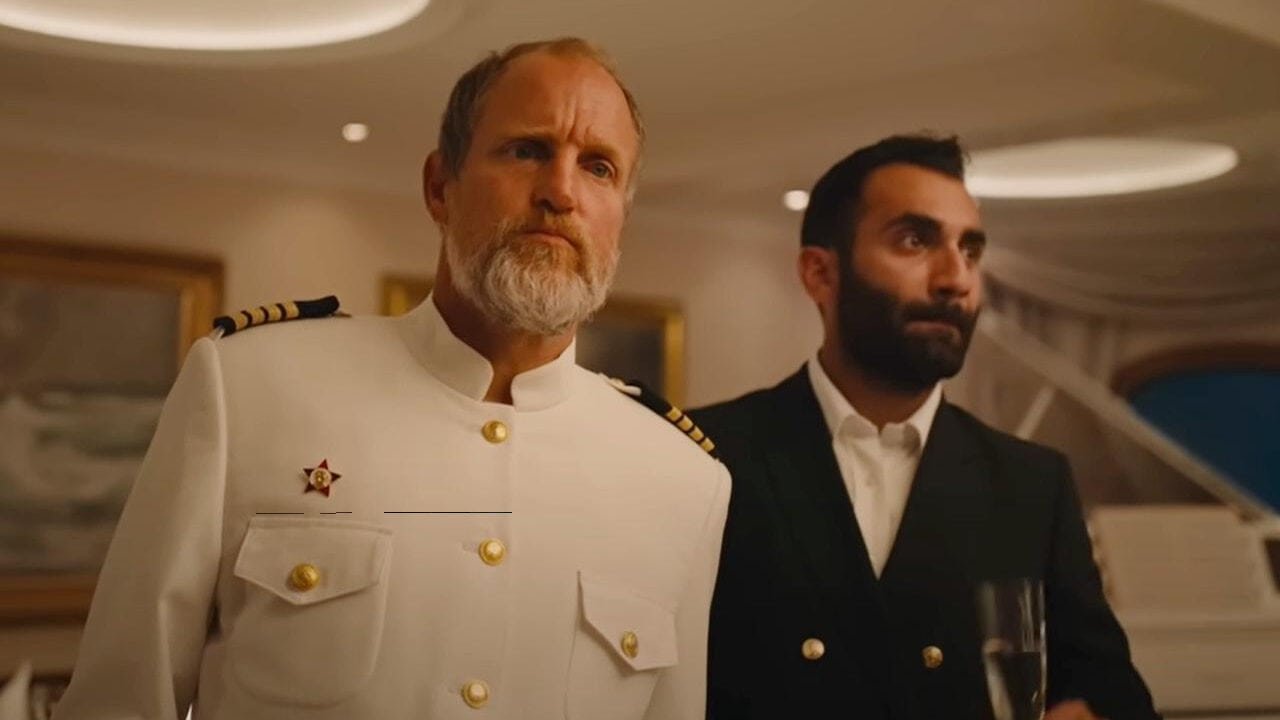The lives of the rich and famous is a concept that we can’t help but fantasize about. The alluring nature of a lifestyle we have never (nor likely will never) experience is a subject we love exploring and glamorizing in entertainment, which often romanticizes the status of some truly unhappy people. If you want quasi-realism and some truly brutal takedowns, watch Succession.
But for every fantasy, there must be a grounded reality. There must be a cynical look into the lifestyle that many idolize and strive for, and these days it seems like there’s a new one every year. There’s a certain irony to a movie or show about how terrible the über rich can be, that is usually made by (and/or starring) certain members of the said one percent. This year’s ironic presentation is Triangle of Sadness, already heavily lauded before it even made its way to the United States.
Two-time Palme d’Or winner Ruben Östlund makes his English-language feature debut with Triangle of Sadness, which takes a bleak and unflinchingly hilarious look at materialism and the absurd lengths capitalists will go to in preserving the way of life they’ve gotten so used to.
Rising star Harris Dickinson (The King’s Man, See How They Run) stars as Carl, a model who is in a “fame-based relationship” with fellow model Yaya (played by Charlbi Dean, who tragically passed away in August, a mere three months after the film’s Cannes premiere). A contest win leads them to embark on a superyacht luxury cruise, which goes off the rails quicker than you can say “What could possibly go wrong?!”
As one might expect, Triangle of Sadness is nowhere near subtle with its messages. Everything has a point — the repeating motif of buzzing flies, the lavish production design, and the incessant use of the cell phone camera shutter sound effect, among pretty much everything else — which is impressive, to say the least. Though that care on the production side is present throughout the entire film, that effort becomes more noticeable as the events progress, eventually escalating to the ridiculous and absurd heights I expected from a two-and-a-half hour awards contender.
The class commentary peaks in the third act of Triangle of Sadness, which puts the characters we’ve gotten to know thus far into a brand-new situation that challenges and brutalizes their perceptions of what life should be. Its examination of human nature contrasted with the class and situation one is born into (or the wealth that one could amass later in life) is a fascinating discussion, and it is one that Triangle of Sadness is very interested in having.
Is Triangle of Sadness this year’s Parasite? Well, you don’t win the Palme d’Or for nothing, but it seems like these days you’re most likely to win if you’re a movie about how terrible and crazy rich people can be — especially when they come into direct conflict with those of a lower tax bracket. It can be tough to categorize exactly what the film’s attitude towards its characters is, but what’s crystal clear is that they don’t deserve salvation. It rejects capitalism nor socialism, but doesn’t endorse them either, giving us a statement beyond the par-for-the-course conclusion that “rich people are awful.” Despite how viscerally uncomfortable and explicitly gross it can get, that’s the way the world works…and we all know how difficult that is to change.
Triangle of Sadness premieres tonight at the New York Film Festival, before hitting theaters October 7.




No comments:
Post a Comment